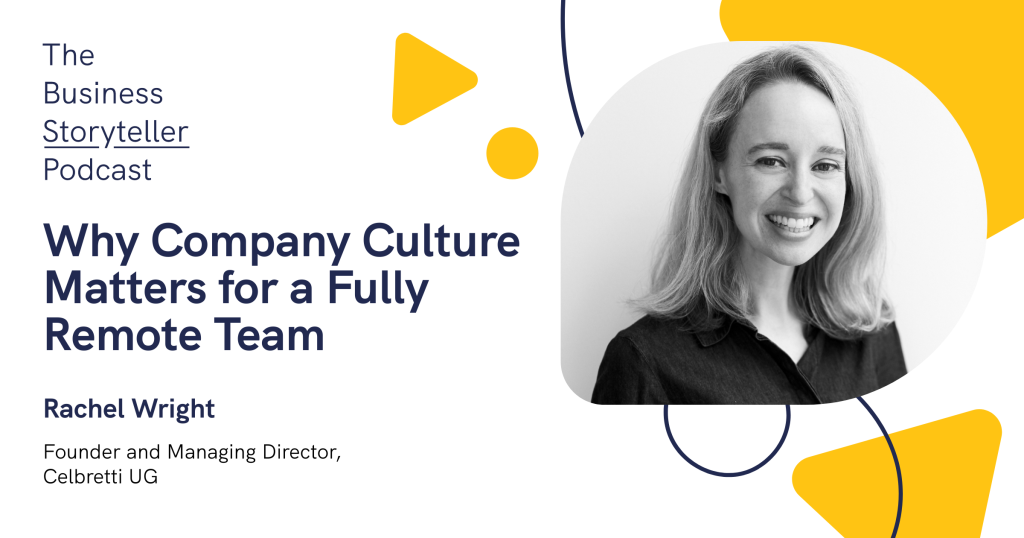
Show Notes
- 01:17 – Rachel’s career journey from Zalando to Zengrowth
- 02:49 – Why culture matters for a company?
- 04:56 – Importance of culture for a remote company
- 06:08 – How the pandemic has shifted the emphasis of company culture beyond lip service
- 07:34 – Key lessons from building a culture at Zengrowth
- 13:12 – The challenge of building culture for a fully remote team
- 16:45 – How culture has benefited Zengrowth internally and externally
- 20:58 – 3 tips for building a great culture for remote teams
- 24:23 – The future of work culture for remote companies
- 27:47 – Examples from remote companies that are successful in building a great work culture
- 30:16 – Fun questions with Rachel


